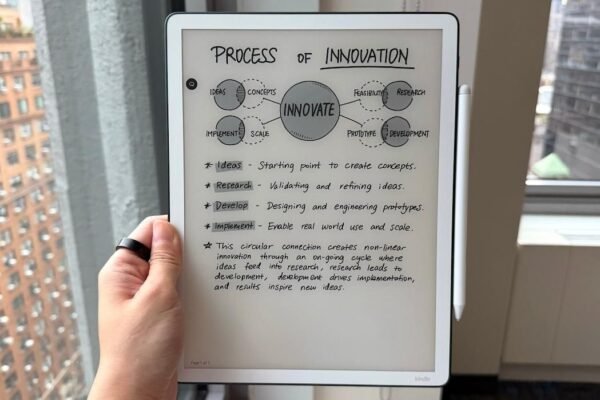
Greece’s Economists Advocate For The Use Of Tourism Tax Revenues To Fund Infrastructure Upgrades And Maintenance, Ensuring Sustainable Growth

Gre ece’sTourism economists have urged that a significant portion of the revenue generated from tou rism taxes be allocated to the improvement and maintenance of local infrastructure. With tou rism playing a crucial role in the country’s economy, contributing to a substantial share of Greece’s GDP, experts believe that reinvesting these funds into the country’s infrastructure will ensure its sustainable growth. The proposal aims to address the growing pressures on essential services, including water supply, waste management, and transportation, particularly in tou ist-heavy areas. This strategic investment would provide long-term solutions to meet the demands of both visitors and local communities, while preserving the country’s appeal as a top touri st destination.
The Greek Panel of Economists, a distinguished group connected with the Liberal Studies Center, has proposed a strategy that could play a pivotal role in enhancing Greece’s to urism sector. They have recommended that a substantial portion of the revenues generated from tourism taxes be redirected towards the development, enhancement, and maintenance of local infrastructure in key tourist destinations. This call to action comes at a time when the to urism industry is growing in importance, but also in complexity, with infrastructure struggling to keep up with increasing demands.
Advertisement
Tou rism is one of Greece’s most vital economic sectors, contributing significantly to the country’s GDP. According to data provided by the Institute of the Association of Greek To urism Enterprises (INSETE), tourism’s direct economic contribution in 2024 reached a remarkable €30.2 billion, accounting for 13% of Greece’s total GDP. This figure highlights the integral role tourism plays in the national economy. However, the indirect contributions, which include areas such as jobs created by the tourism industry, local businesses that rely on tourists, and the spillover economic impact, push the total contribution of tourism to Greece’s economy beyond 30%. This broad economic significance underscores the importance of a robust tourism strategy that not only capitalizes on these revenues but also addresses the challenges associated with rapid tou rism growth.
While the positive economic impact of tou rism cannot be denied, the influx of visitors to Greece—especially to its popular islands and destinations—has created a set of challenges that need urgent attention. Economists have pointed out that one of the major issues is the strain that tourism places on the infrastructure of these regions. Popular tourist destinations are experiencing heightened pressure on their carrying capacity. This pressure manifests in various forms, from the overburdening of essential services such as water supply, waste management, and sewage systems, to the strain on transportation networks and broader environmental concerns.
Many islands, in particular, are feeling the impact more acutely. Islands, with their limited land and resources, face additional challenges in providing adequate infrastructure to accommodate the seasonal spikes in tourism. The lack of sufficient water supply systems, for example, is a recurring issue, especially during the peak summer months when tourist numbers are at their highest. In some cases, emergency solutions, such as temporary water supply systems or additional waste management measures, are implemented to cope with the increased demand. However, these short-term fixes are not sustainable and can be both costly and inefficient.
Economists argue that these challenges cannot be addressed solely through temporary solutions. Instead, long-term investment in infrastructure is necessary to ensure that tourism can continue to thrive without damaging the very systems it depends on. This would require a coordinated effort to modernize and maintain infrastructure to meet both the current and future demands of the tourism sector.
Advertisement
The proposed allocation of tou rism tax revenues towards infrastructure development and maintenance aims to provide a sustainable model for supporting the to urism industry. Such investments could cover a range of improvements, including upgrading water and waste management systems, enhancing transportation networks, and improving public services in tourist-heavy areas. By making these necessary investments, Greece could not only improve the quality of life for its residents but also enhance the experience for visitors, ensuring that the country’s most beloved destinations remain attractive and accessible for years to come.
Moreover, sustainable infrastructure development has the potential to mitigate environmental impacts. The t urism sector often contributes to environmental degradation, from pollution to increased carbon footprints. By focusing on sustainable infrastructure, Greece can ensure that tourism growth aligns with environmental conservation efforts. For instance, modern waste management systems and energy-efficient public transportation networks could help reduce the sector’s environmental footprint while still meeting the needs of visitors.
Additionally, investing in infrastructure would provide more benefits than just keeping up with the increasing demands of touri sm. It would also enhance Greece’s competitiveness as a tourist destination. Travelers are becoming increasingly conscious of the environmental and social impacts of their visits. Destinations that prioritize sustainability and responsible tourism practices are likely to attract more environmentally aware visitors, thus further boosting tourism revenues in the long term.
The Greek government has already taken some steps in recognizing the need for improved infrastructure in tourism-heavy areas. Several initiatives have been launched over the years aimed at upgrading infrastructure, particularly in the islands, and addressing issues such as waste management, water supply, and public transport. However, these efforts need to be scaled up and supported with consistent funding, particularly as the demand for to urism services continues to grow.
Greece’s economists have called for a portion of tourism tax revenues to be used for enhancing local infrastructure, aiming to support sustainable growth in the tour ism sector. This investment is seen as crucial for addressing the mounting pressures on services and ensuring long-term viability.
the Greek Panel of Economists’ proposal to allocate a significant portion of tourism tax revenues towards infrastructure development is a call for a more sustainable, efficient, and future-ready tourism sector. By investing in local infrastructure, Greece can ensure that its tourism sector remains strong while also safeguarding the environment and improving the quality of life for its residents. Long-term infrastructure investment, supported by revenues from the growing touri sm industry, offers a sustainable path forward for Greece, securing both its economic stability and its cultural and environmental integrity for generations to come.











